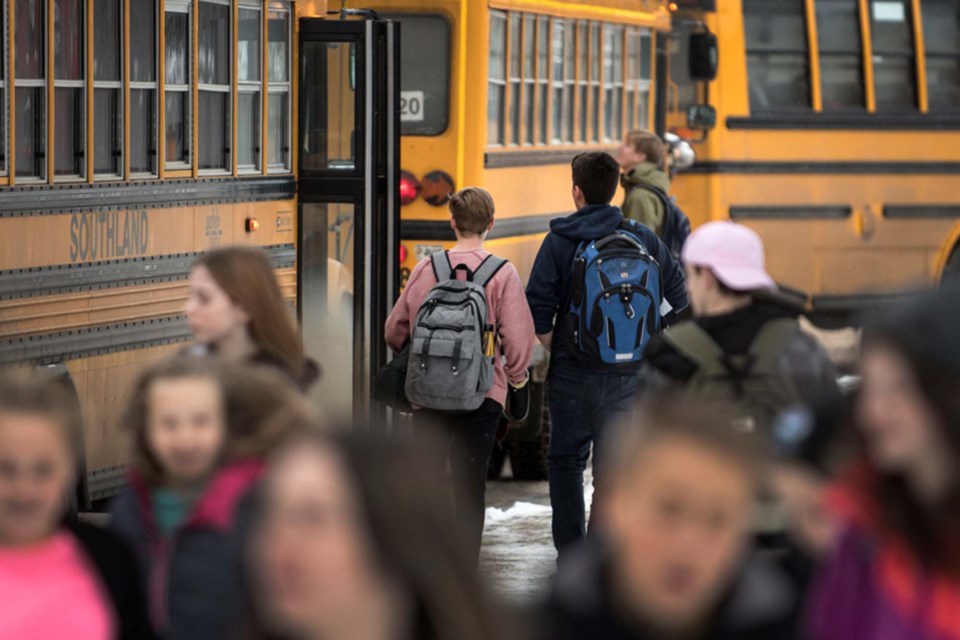A recent survey into race-based bullying is guiding efforts to make learning environments in St. Albert public schools safer for Indigenous students.
Issued last spring, the Indigenous Student Experience Survey was aimed to help understand the experiences of Grade 8-12 students who self-identified as First Nations, Métis or Inuit. The survey was developed in partnership with former University of Calgary professor Dr. Dustin Louie.
The Gazette discussed the results of the survey with St. Albert Public school district in recognition of Bullying Awareness Week in Canada from Nov. 14 to Nov. 19.
Of the 96 students who completed the survey, 31.25 per cent said they had experience or witnessed racism at school.
That statistic increased to around 45 per cent in a separate survey that was open to all students, said Marianne Barrett, St. Albert Public deputy superintendent.
“This work is about creating space and opportunities for Indigenous families and Indigenous students to tell us what they're experiencing and what they need,” Barrett said.
“To me that's about authentically engaging in this work, as opposed to making assumptions about what people experience or what people would like to see happening.”
Having Indigenous culture and knowledge represented more visibly and often in schools is a common response, Barrett said.
“Highlighting contributions of Indigenous people and being really intentional about that was a piece that stood out for me for sure,” she said.
Self-identified Indigenous students in St. Albert public schools increased from 350 students to nearly 800 students since 2015 — representing nearly 10 per cent of the district’s school population, Barrett said.
However, 35 per cent of students said there were specific actions in their schools that supported their identification as Indigenous.
The school district started efforts to address institutionalized racism in 2015, but Barrett said this work will be more intentional moving forward. Racism in schools can influence a student’s attendance, their sense of belonging, and their own expectations of themselves, she said.
“Sometimes we think we're doing that work, but we're not necessarily as explicit as we could be. And so as we're moving forward, we will be more explicit around anti-racism, anti-oppressive initiatives.”
An October 2021 Angus-Reid survey found that 58 per cent of Canadian students aged 12 to 17 had seen or experienced name-calling, exclusion, or bullying in school based on race or ethnicity, with Indigenous students twice as likely to have experienced race-based bullying than other students.
While the local survey highlighted areas of improvement, there were positive responses from self-identified Indigenous students as well.
Nearly 88 per cent said they were proud of their Indigenous ancestry, while 92 per cent said they feel safe and free to identify as Indigenous at school.
More than 90 per cent did not identify or were not sure of any barriers to their success at school; however, several students identified the need for more adult Indigenous mentors and elders being a part of the school community.
"We've been trying to really increase the number of Indigenous community members and elders in our schools," Barrett said.
For example, community members are brought in to teach Cree and Mischief languages, and there are beading workshops and smudging groups held every few weeks. School staff also participated in a sweat lodge ceremony last June, she said.
Moving forward, Barrett said the school district is looking at developing an anti-oppression course in 2023. The district has also submitted a proposal to Alberta Education as part of their mental health funding envelope to support an Indigenous Wellness Coach to work directly with students.
Having the province implement the Indigenous Student Experience Survey in schools across Alberta is an action St. Albert Public would like to see, she said.
“It would be nice to have that provincial direction as well, because I think it would be powerful coming from the province.”



